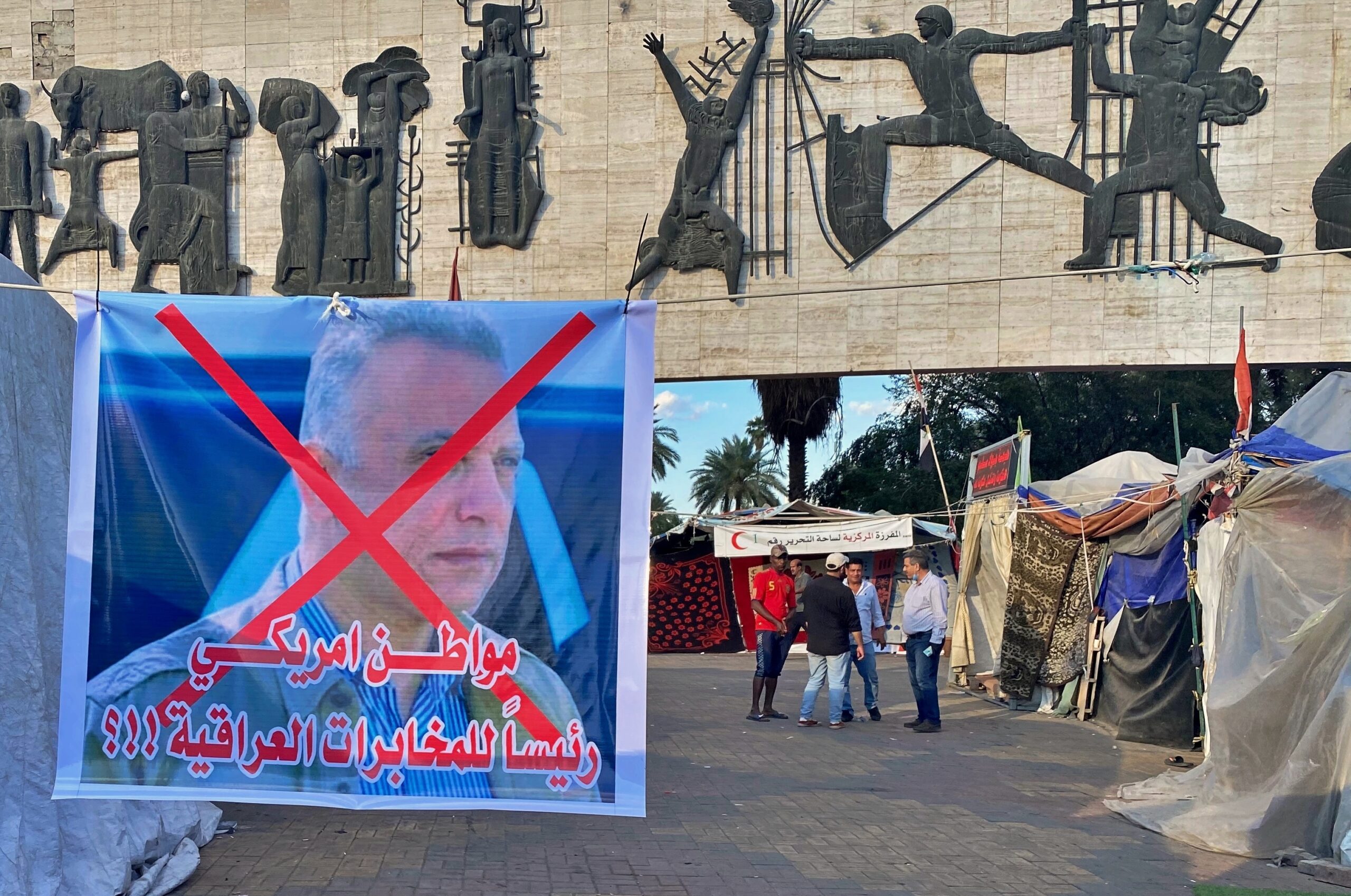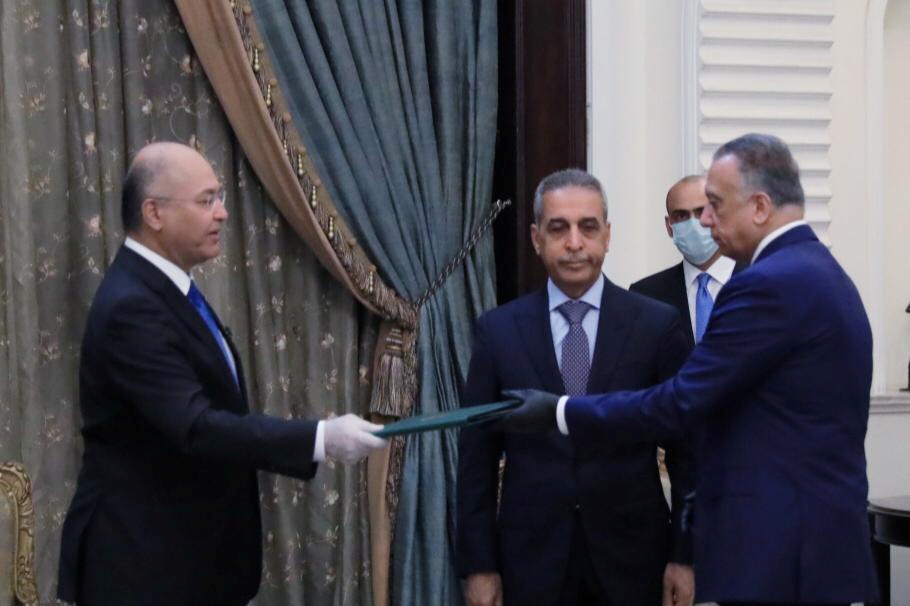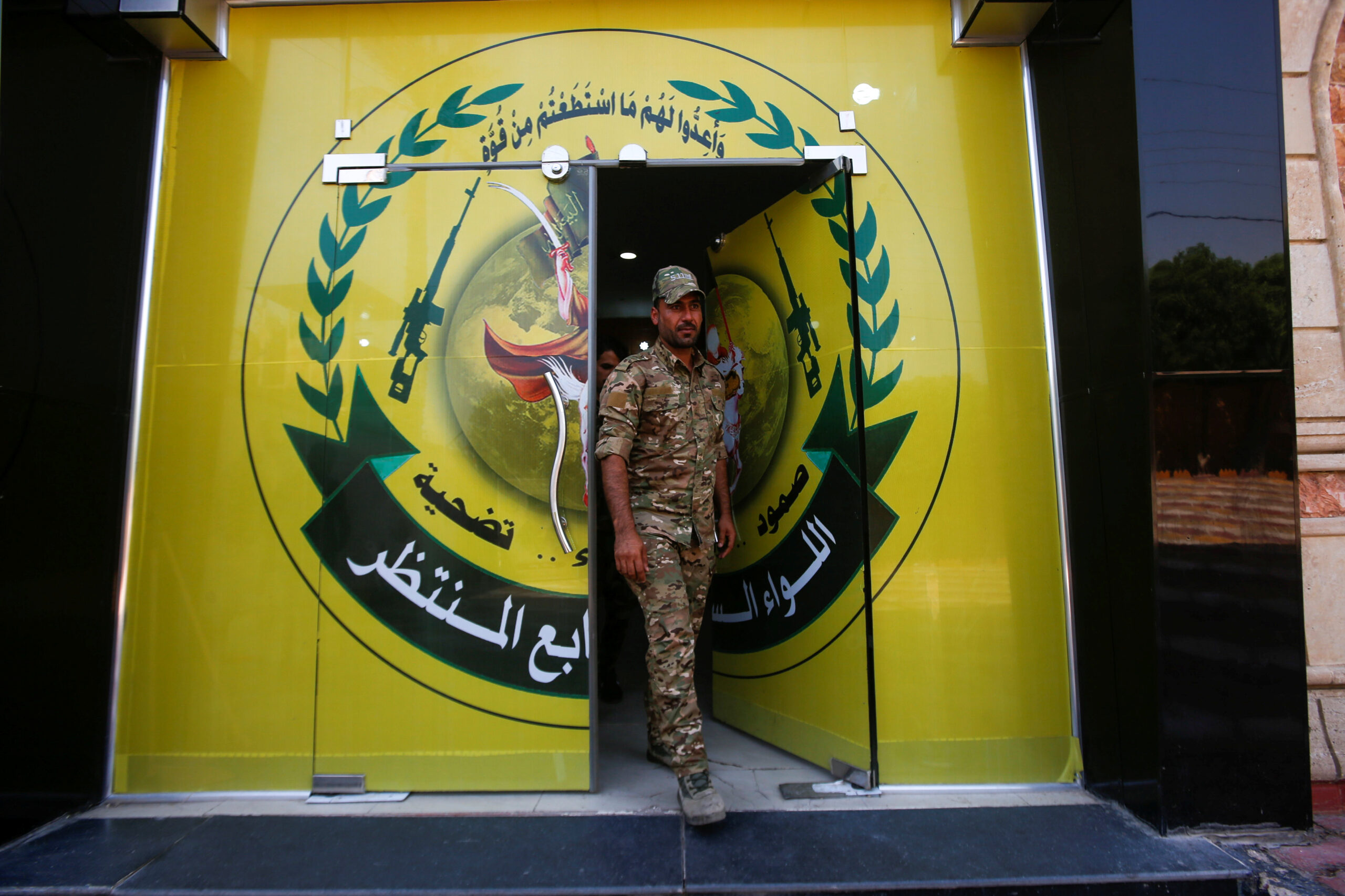Iraq: Balancing Party Demands is a Recipe for Paralysis in New Government
Efforts by the prime minister-designate to win parliamentary support cannot come at the expense of articulating coherent policy.

Mustafa al-Kadhimi appears the compromise prime ministerial candidate acceptable to the ruling elites of Iraq. But Kadhimi, too, must engage in a few compromises of his own to satisfy the conflicting demands of his parliamentary backers and receive a vote of confidence. How is Kadhimi likely to reconcile those conflicting demands? A survey of Persian and Arabic language sources shows that rather than engaging in the futile exercise of reconciling fundamentally irreconcilable demands, Kadhimi, as is traditional in Iraqi government formation, will use the composition of the cabinet to make competing blocs stakeholders in his political survival. Kadhimi’s strategy may work, and his cabinet may get a vote of confidence, but with no agreement on policy, it risks paralysis.
As Kadhimi received the nomination on April 9, he said, “arms are the prerogative of the state and only the state,” which may have been an attempt to satisfy Washington’s demand for subjecting Shia militias to real, rather than nominal, government control. However, in the next sentence, Kadhimi included the Popular Mobilization Forces and Iraqi Kurdish Peshmerga as groups that could carry weapons. Including the PMF and Peshmerga is both a sop to reality and a step to ensure that two powerful political constituencies support his candidacy.
Around the same time that Kadhimi met the press, Saad al-Saadi, member of the political bureau of Asaib Ahl al-Haq, said the militia’s parliamentarians conditioned their support for Kadhimi’s cabinet on his readiness to “execute the parliamentary resolution to expel American military personnel” from Iraq. Saadi further claimed Kadhimi had accepted that condition. Mohammed al-Ghabban, head of the parliamentary bloc of the Fatah Alliance, confirmed Saadi’s account.
Remarkably, Kadhimi also appears to have accepted the opposite condition demanding a continued U.S. military presence in Iraq. On April 16, Sarku Azad Golali of the Kurdistan Regional Parliament disclosed that before his nomination, Kadhimi had engaged in extensive negotiations with Kurdistan Regional Government President Nechirvan Barzani (of the Kurdistan Democratic Party) and Lahur Talabany, co-leader of the Patriotic Union of Kurdistan. According to Golali, the Kurdish leaders had expressed their opposition to the withdrawal of the U.S. military from Iraq, saying, “Kurds believe the United States is the leader of the coalition against ISIL [Islamic State in Iraq and the Levant]. At a time when the threat of ISIL still is present in certain parts of Iraq and the Kurdistan region, the coalition must be preserved.”
Kadhimi will be unable to reconcile the fundamentally irreconcilable demands concerning a government monopoly on the legal possession of firearms, or those of the representatives of Shia militias and the KRG on the U.S. military presence in Iraq. Therefore, Kadhimi is likely to use the composition of the cabinet as the main instrument of garnering parliamentary support, and he appears to have made significant progress.
On April 13, an unnamed source quoted by the Kurdish news network, Rudaw, claimed Hadi al-Amiri of the Fatah Alliance had hosted a group of Shia political leaders, including Ammar al-Hakim of the Wisdom Movement, former Prime Minister Haider al-Abadi of the al-Nasr alliance, and Nassar al-Rabiee of the Sadrist Sairoon movement. Allegedly, all had agreed to give Kadhimi “a free hand” to compose a cabinet, “respecting the balance of power among political groups.” Ghaib al-Amiri of Sairoon and other members of the Shia bloc have since urged Sunni and Kurdish parliamentarians to follow their example instead of demanding quotas.
By April 16, it was apparent that the Shia parties were not giving Kadhimi “a free hand” to compose the Cabinet but had already tried to negotiate their share of the cabinet with him. According to Riad al-Tamimi of the Nasr alliance, the Sairoon and the Fatah Alliance would each get three Cabinet positions. Two Cabinet positions would be offered to Nasr, while the State of Law and the Wisdom Movement would each receive one position. In his April 19 analysis of political developments in Baghdad, Farhad Alaaldin, former political adviser to President Barham Salih, disclosed that Sairoon and Fatah are demanding to appoint the ministers representing their share of the cabinet themselves.
According to Hanin Qadou of the Fatah Alliance, the Sunni faction is demanding six cabinet positions. Qadou also claimed Kurdish groups are “making demands undermining” the freedom of action of the prime minister-designate. It is not known what those “undermining” demands are, but on April 16, Imad Bajlan of the KDP said Kadhimi must select his Kurdish cabinet ministers “in consultation with the legal authorities of the Kurdistan Regional Government.” The KRG’s president, Barzani, noted in an April 19 speech that a delegation representing Kurdish parties would travel to Baghdad to “negotiate the [Kurdish] vote [for Kadhimi’s Cabinet] and the demands of the Kurdistan Region.” Aaliyah Nasif, parliamentarian from the State of Law coalition, says Kadhimi has caved to that demand, and each party, Kurdish or otherwise, will nominate its own candidates for the cabinet. Barzani, however, said he understood that the distribution of ministries to the Kurds “will be the same but we are not sure about the ministers.”
Some reports say that Kadhimi will be forced to accept a traditional party/ethnic mix for his cabinet in order to win a vote of confidence in Parliament. According to these reports, Kadhimi’s likely 22 Cabinet ministers would consist of 11 Shia, six Sunni, four Kurds, and one minister who will be either Turkmen or Christian. Some Persian language sources, quoting Iraqi websites, released a supposed complete list of cabinet ministers on April 16. However, this list is only one of several circulating in Iraqi political circles, and sources from the Persian language report also cited the office of the prime minister dismissing the list as pure “speculation.”
While Iraqi parliamentarians are engaged in a ceaseless media campaign to shape public opinion, and perhaps affect the composition of the Cabinet, Kadhimi himself is making few public statements. After all, he comes from a position as director of the Iraqi National Intelligence Service and may be more comfortable negotiating behind closed doors. But on April 18, he tweeted that cabinet formation is “underway and progressing positively.” The same article also claimed he has managed to reach an agreement with Shia and Sunni groups on selecting candidates for the cabinet and is now awaiting a response from the Kurdish parties.
Kadhimi may indeed be making progress with the formation of his cabinet, and the parliament may give him the much-coveted vote of confidence. However, by disregarding fundamental policy disagreements among the parliamentary blocs and his own ministers, particularly if some or all are imposed on him, the prime minister-designate risks presiding over a paralyzed cabinet.
The views represented herein are the author's or speaker's own and do not necessarily reflect the views of AGSI, its staff, or its board of directors.



















